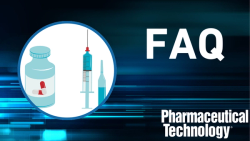
OR WAIT null SECS
- About Us
- Advertise
- Contact Us
- Editorial Info
- Editorial Advisory Board
- Do Not Sell My Personal Information
- Privacy Policy
- Terms and Conditions
© 2026 MJH Life Sciences™ , Pharmaceutical Technology - Pharma News and Development Insights. All rights reserved.
Phase III Data on Moderna COVID-19 Vaccine Supports Its Effectiveness, says Report
A report in the New England Journal of Medicine states preliminary results from a Phase III clinical trial shows the vaccine is 94.1% effective.
On Dec. 30, 2020, the National Institutes of Health (NIH) stated in a press release that a report in the New England Journal of Medicine says Moderna’s mRNA-1273 COVID-19 vaccine (co-developed with the National Institute of Allergy and Infectious Diseases [NIAID]) is 94.1% efficacious, according to preliminary results from a Phase III clinical trial. There were also no safety concerns identified, according to the report. FDA issued Emergency Use Authorization for the vaccine on Dec. 18, 2020.
The trial was implemented under Operation Warp Speed with support by NIAID and the Biomedical Advanced Research and Development Authority (BARDA) and included 30,420 adults who were randomly to receive either the vaccine or placebo. “From the start of the trial through Nov. 25, 2020, investigators recorded 196 cases of symptomatic COVID-19 occurring among participants at least 14 days after they received their second shot. One hundred and eighty-five cases (30 of which were classified as severe COVID-19) occurred in the placebo group and 11 cases (0 of which were classified as severe COVID-19) occurred in the group receiving mRNA-1273. The incidence of symptomatic COVID-19 was 94.1% lower in those participants who received mRNA-1273 as compared to those receiving placebo,” NIH stated in the press release.
The authors of the report stated there were no “concerning safety issues” and local reactions were mild. Approximately half of the trial participants experienced fatigue, muscle aches, joint pain, and headaches after receiving the second dose of vaccine.
“Although mRNA-1273 is highly efficacious in preventing symptomatic COVID-19, there is not yet enough available data to draw conclusions as to whether the vaccine can impact SARS-CoV-2 transmission. Preliminary trial data suggests there may be some degree of prevention of asymptomatic infection after a single dose. Additional analyses are underway of the incidence of asymptomatic infection and viral shedding post-infection to understand the vaccine’s impact on infectiousness,” NIH stated in the release.
Source: NIH



